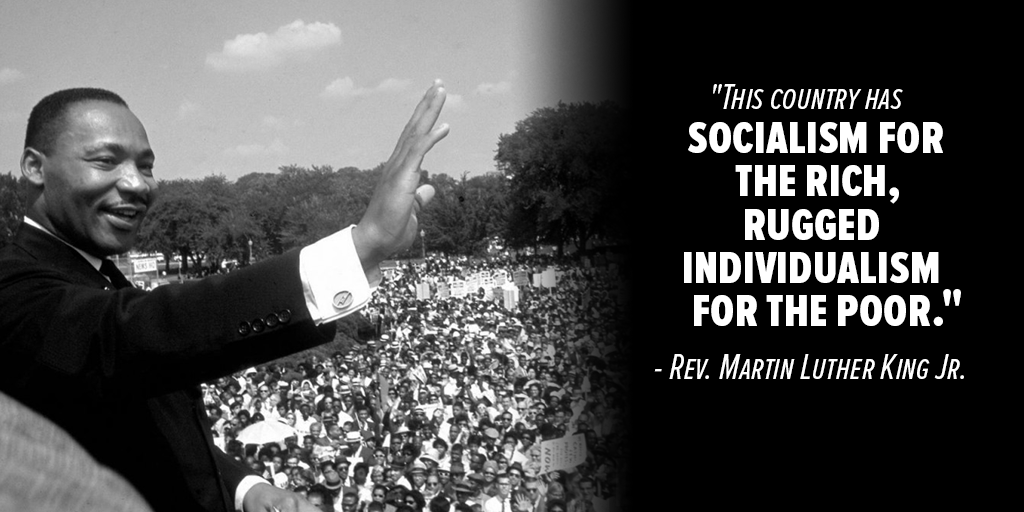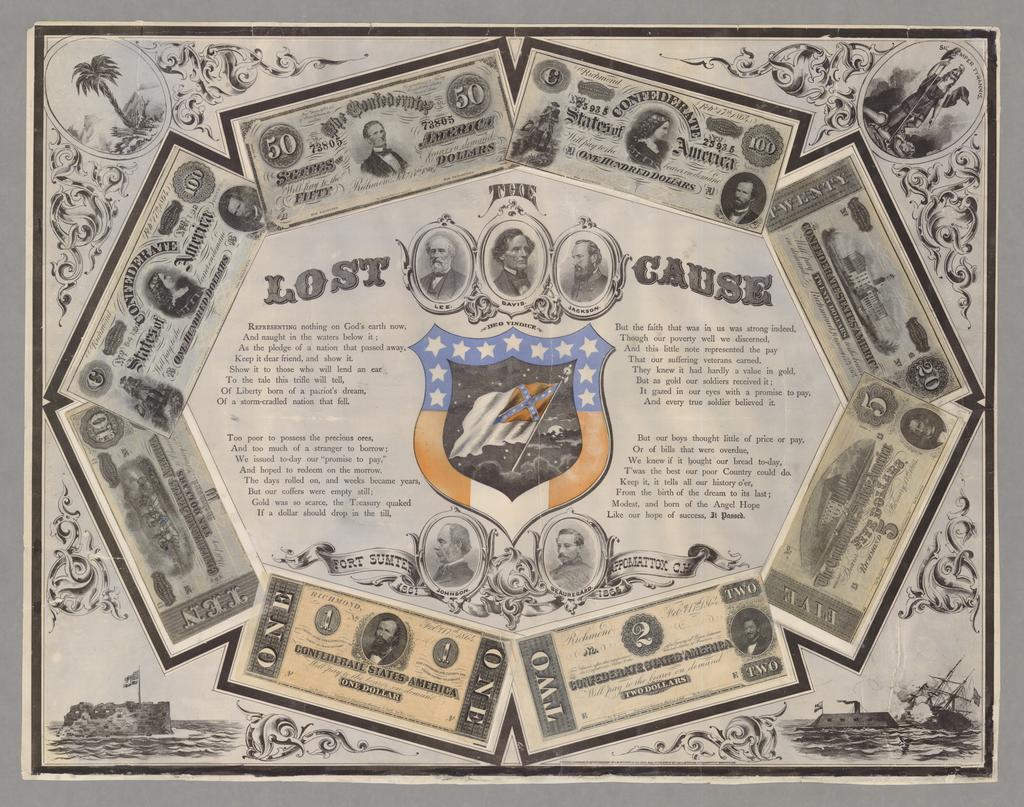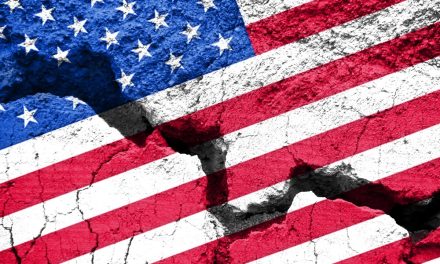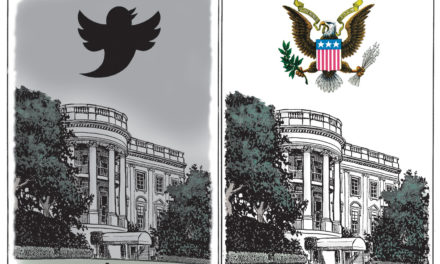Wednesday of last week was Dr. Martin Luther King’s birthday – the 57th since he was murdered in Memphis – and today is the official federal holiday to honor his advocacy of nonviolence and to remind Americans of how we have fallen short of living up to the full promise of its founding documents.
Dr. King’s words continue to inspire and mobilize, particularly when they are interpreted accurately through the revolutionary lens that most appropriately distills his ministry, his philosophy, and his activism. In the intervening years since his death, his legacy has been sanitized and his words have been sterilized to the extent that they are now quoted by people to justify actions that he clearly would have abhorred.
As William Shakespeare wrote in the Merchant of Venice, even “the devil can cite Scripture for his purpose,” and such is the case with the words of Dr. King.
It’s like the watered down version of Jesus so prevalent in some prominent corners of Christianity today – no longer a revolutionary attacking the established order and the power brokers or advocating for the poor, the marginalized, the imprisoned, and the immigrant – Jesus is transformed to rationalize blind capitalism and exploitation, persecution of the other, and the use of Bible as a cudgel to attack others.
The Accurate Context
Today, we rarely hear about Dr. King’s willingness to pursue a heightened level of confrontation – always nonviolent – and meaningful resistance while rejecting the language of American exceptionalism as empty rhetoric until the United States fulfills its covenant with every American as stated in the Declaration of Independence and the U.S. Constitution.
In the last years of his life, Dr. King was clearly in the midst of an evolution, but he was struck down before it was fully definedt. It is painful to imagine how different America could be if the revolutionary Martin Luther King Jr. had lived, but the messages we are left with are powerful just the same.
“It may be said of the slavery era that the white man took the world and gave the Negro Jesus, then it may be said of the Reconstruction era that the southern aristocracy took the world and gave the poor white man Jim Crow,” he said at the end of the Selma to Montgomery march on March 25, 1965. Two years later, on April 4, 1967, he said: “Our only hope today lies in our ability to recapture the revolutionary spirit and go out into a sometimes hostile world declaring eternal hostility to poverty, racism, and militarism.”
It is indeed an irony of the Christianization of slavery that while White society was pushing paintings of a European, rather than a Semitic Jesus, the African American ministers of the day saw Jesus for what he was – a dark-skinned rebel – and a century later, they saw Dr. King for what he was – an insurgent and resistance fighter.
Influencers
Today is also a day to reflect on other thinkers whose philosophy inspired Dr. King. Our own courageous journalist Ida B. Wells: “That (the Memphis lynchings) is what opened my eyes to what lynching really was – an excuse to get rid of Negroes who were acquiring wealth and property and thus keep the race terrorized.”
Union and civil rights leader A. Philip Randolph: “True liberation can be acquired and maintained only when the Negro people possess power. And power is the product and flower of organization…of the masses” and at the banquet table of nature, there are no reserved seats. You get what you can take, and you keep what you can hold. If you can’t take anything, you won’t get anything, and if you can’t hold anything, you won’t keep anything. And you can’t take anything without organization.”
And an appropriate quote for White America on this special day by Georgetown Professor Michael Eric Dyson: “What better way to use White privilege than to undermine it, raise questions about it, leverage it on behalf of black and brown people, who don’t usually have a voice in the matter at all.”
If Dr. King’s legacy teaches us anything, it is that morality requires action, action drives change, and much, much more change is needed today.
Troubling Context Remains
Just think: when Dr. King was killed, the median income of White households in Shelby County was twice African American families. It remains roughly the same today.
And that’s despite African Americans increasing their high school graduation rate from 15% to 83% and the percentage of bachelor’s degrees from 4% to 20%, and while the percentage of African Americans with white collar jobs rose from about 8% to 53%.
Since Dr. King’s death, the poverty rate in Shelby County for African Americans remains almost four times more than the White poverty rate – 24.4% to 6.7%.
The Black child poverty rate in Shelby County is more than seven times higher than the poverty rate of White children – 39.2% to 5.2%.
Among African American workers in Memphis, 42% earn less than $15 an hour, an amount treated as a living wage when the living wage for Shelby County is actually $34 an hour.
Too Little Progress
These are serious political and economic challenges for our community. More than that, they are moral challenges, and Dr. King was eloquently challenging Memphis – and America – to address them.
And now that the United States has entered into a modern version of the Gilded Age with a return to disturbing levels of income inequality and present day monopolists, it is unquestionable that Dr. King would be sounding the call for change and yes, for diversity, equality, and inclusion so that all people have access to the prosperity and opportunity promised by the American Dream.
White Shelby County often acts perplexed that African Americans here are exasperated by White state legislators limiting the self-governance of a majority Black city to control its own destiny and when confronted by the fact that its African American neighbors are disturbed by the lack of progress on income and opportunity inequality that remains built into the local economy. All in all, it’s another symptom of the death of empathy that grips the today’s politics. Statistics tell a story of too little progress for too long, and today, Dr. King’s life should remind us that shrugging and accepting the status quo is unthinkable and implausible.
In a majority African American city in a majority African American county in a region that will in a few years become the first majority African American MSA with more than one million people, it is in everyone’s enlightened self-interest to do more than just recite Dr. King’s words but to act in keeping with his example to us.
No Better Place Then Here
On this day to remember Dr. King and in the face of today’s presidential inauguration, there has never been a better time to use his life to reactivate our commitment to the principles he championed and which are overtly threatened and undermined in our nation today.
After all, his ministry was formed and defined because he took the founding documents of this nation at their word. They did in fact inspire a dream that America would ultimately understand that when any of us are used as scapegoats, are vilified and marginalized, and are the victimized by unfair public policy, we all are ultimately victims.
As Dr. King said, in the end, we will remember not the words of our enemies but the silence of our friends. The silence that he spoke of was that of White moderates who knew better but chose expediency over principle.
It is in this silence that racism and discrimination grow.
It is sometimes easy in the United States today to believe that we are adept at giving lip service – and only lip service – to justice and equality for all Americans. That in turn becomes the ultimate failure of understanding what Dr. King’s life meant – but it’s also the failure of understanding what the United States means and represents.
Dr. King said it’s up to each of us to make the world a better and more equitable place to live. There should be no place more appropriate for these values to thrive than Memphis and Shelby County, where Dr. King’s life came to its tragic and premature end, so that our individual acts of compassion and kindness drive actions that refuse to give injustice the chance to take root and grow.
**
Join me at the Smart City Memphis Facebook page and on Instagram where these blog posts are published along with occasional articles, reports, and commentaries that are relevant to Memphis.






